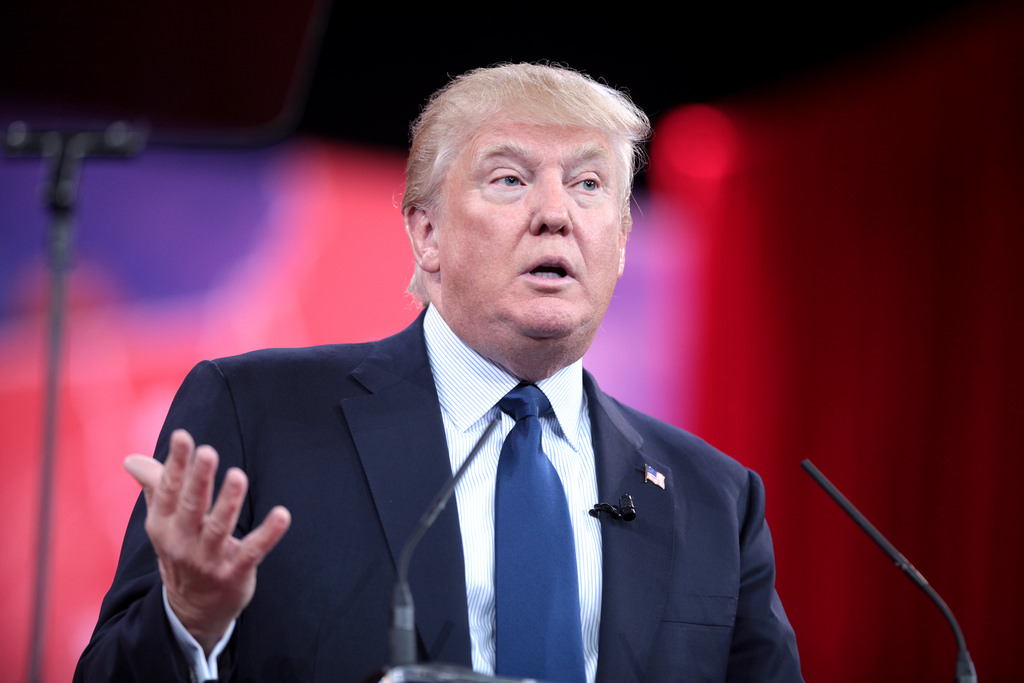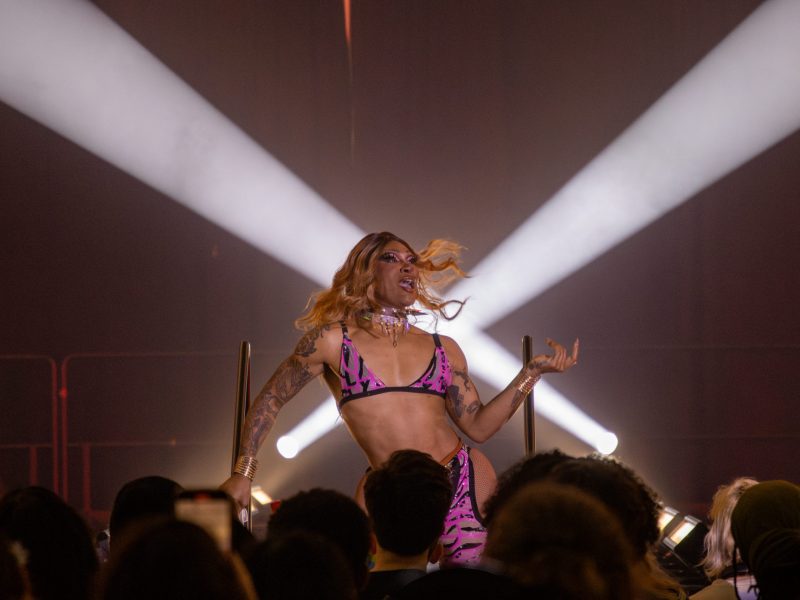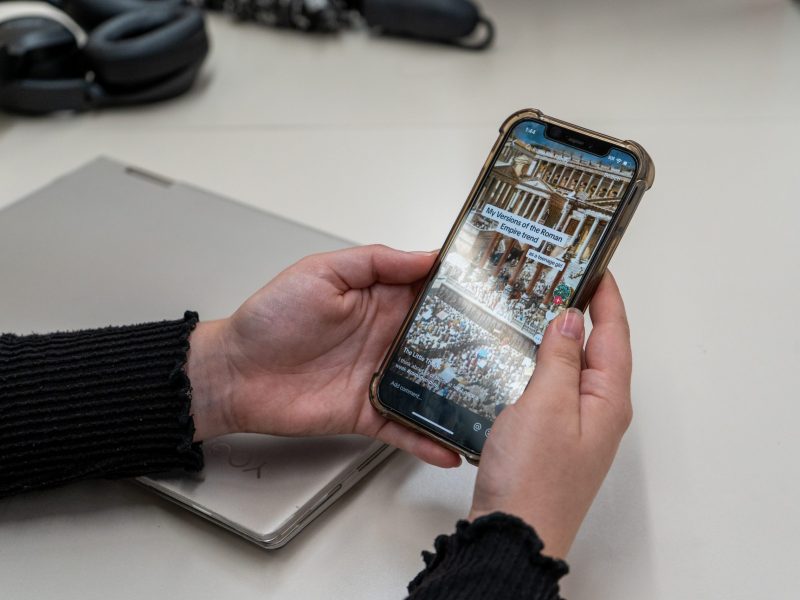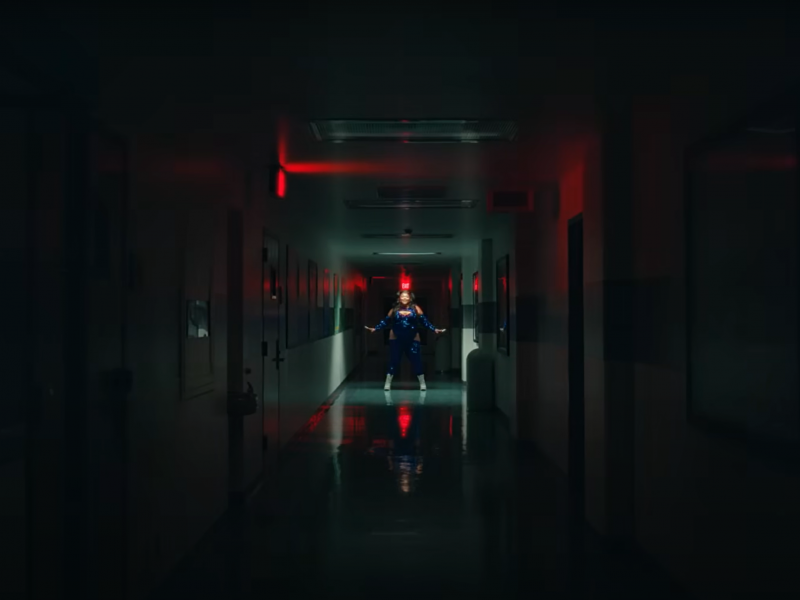Before the election happened Tuesday night, I planned to write a piece (originally a transcript for The Dive podcast, which you can listen to here) about how both major party presidential candidates — to wildly varying degrees — used the LGBTQ community more as a rainbow-colored commodity to wrap themselves in as a shallow show of tolerance than anything else. I planned to write that Hillary Clinton, no matter how vocal of an ally she claims to be now, for a long time opposed much of what LGBTQ people advocated for during the presidency of her husband and time in the U.S. Senate. I planned to write that Donald Trump, despite hoisting a rainbow flag recently in one of his rallies and promising to protect the LGBTQ community, chose Mike Pence as his vice president, someone who advocates for conversion therapy, said “homosexuals are not able bodied as a group,” suggested LGBTQ people can’t be objective journalists because of their “gaydom” and, as governor of Indiana, attempted to move funds away from HIV/AIDS prevention groups to other organizations that claimed they could “fix” LGBTQ people. I planned to write that Trump has gone back and forth on my right to marry, and that he could easily take that away from me and millions of others. I planned to write that he tweeted he “appreciate[d] the congrats” after a shooting at a gay nightclub killed 49 people — thinking his attacks on Muslims were a sign of LGBTQ tolerance. But I planned to celebrate that the vitriol from Trump and Pence was a minor blip on our collective radar, and that now we would push Clinton to be our champion, no matter how much she meant it or not.
But now, here we are, anticipating Donald John Trump as our 45th president of the United States of America. And I think at this point, that discussion about LGBTQ rights isn’t even the most important one to have right now.
On Wednesday night, I attended a rally on the McKeldin Mall, where hundreds of students gathered to air their concerns. Wrapped in a rainbow flag emblazoned with the words “Don’t Tread On Me,” I watched people even more susceptible to the damage Trump can inflict on their lives stand in front of their peers and express nearly every negative emotion possible. Anger. Terror. Sadness. Depression. Confusion. I saw a Latina student shaking, tears welling up in her eyes, as she questioned if her undocumented friends who attend this university could stay in this country. I saw black students — living under the historic presidency of President Barack Obama — coping with the fact that our nation followed up its first black president with a man who spearheaded a movement questioning his legitimacy as a United States citizen, kicked a black supporter out of his rally for thinking he was a “thug” and vocally promotes “All Lives Matter” over “Black Lives Matter.” I saw them coping with the idea that relations with police may grow worse and more strained, their bodies now at even greater risk. I saw a student from Syria, her voice trembling, as she expressed worries about her cousins and grandmother living in her nation that could likely be plunged into even more chaos. I saw Muslim women terrified of the backlash they may face for wearing an article of clothing to express their faith, including one whose father, simply waiting outside her apartment complex in his car to pick her up, had university students call the police on him for “suspicious behavior.” I saw victims of sexual assault wondering how they can have justice if a man bragging about groping women can ascend to the highest office in the land. I saw a gay person who, after the results became official, finally came out to his family, angry at what President-elect Donald Trump might do to roll back the tenuous progress earned in these last eight years.
I’m gay, so I can relate to his pain. The other people, I can attempt to empathize with, and standing out there that night surrounded by so many people who both do and don’t look like me, I think I did. By some measure. But I can never fully feel that pain. I thought I was an advocate for these people — somebody willing to stand up for others of all races, genders, disabilities and faiths, because, despite the safety I assume as a white male, I could feel some level of their oppression due to my sexuality. But the scope of the pain I feel opposed to theirs is marginal, and what happens next is partially my fault. One quote from a Latina student that night still stands out to me.
“It’s nice to see you all here — but where were you guys before? No, like literally, where were you?”
She’s right. As much as I intended to support these groups now facing the possibility of immense oppression, I didn’t do enough to take actual action. I talked to my friends, nearly all of whom hold the same beliefs as me, about this. I didn’t take to the streets in rallies. I didn’t advocate when the chance was there. I sat by, safe in a bubble of privileged, mostly white, progressivism. And this country, as divided as it is, does that, too — their political persuasions varying. We often avoid conflict in our conversations. And sometimes we argue with each other. But we don’t actually listen to learn from each other. We instead sit by patiently, our words meaninglessly wafting up into air, so we can shoot back our thoughts in an endless game where no one’s mind changes and no new information is processed. We put ourselves into echo chambers, surrounded by those who agree and look like us, so we can reassure ourselves that we are, in fact, correct. And the result is this — a country where we are split so evenly down the middle that it seems like we are two nations, ignorant of each other and unwilling to find common ground, with no definite borders or plan to move forward.
So writing about the impact of this election on the LGBTQ community alone is pointless. It’s trivial. And it’s absolutely damaging. I’ve focused too much on what can solely impact me. Everyone — and when I write this, I’m really talking about the majority of white America — does this, too. And the result? People sobbing. People uncertain. People afraid. People unsure if they fit into this New America, whatever it ends up being. And many with hate in their hearts emboldened.
I’m hoping that Donald Trump will prove a better president than I and many others think he will be, and that his election won’t spur a rise of bias and hate. But even if that is not the case, we all need to stop living in our own bubbles, make real connections with others who don’t look or live like us, understand where they are coming from, find the humanity to feel their anxieties — even if we can’t fully wrap our heads around them — and then stand up for those groups when they need it. Because, no matter what shallow attempts at diversity and acceptance this country has made, we certainly haven’t succeeded in becoming a nation united with people who are there for one another. Now look where that got us.



